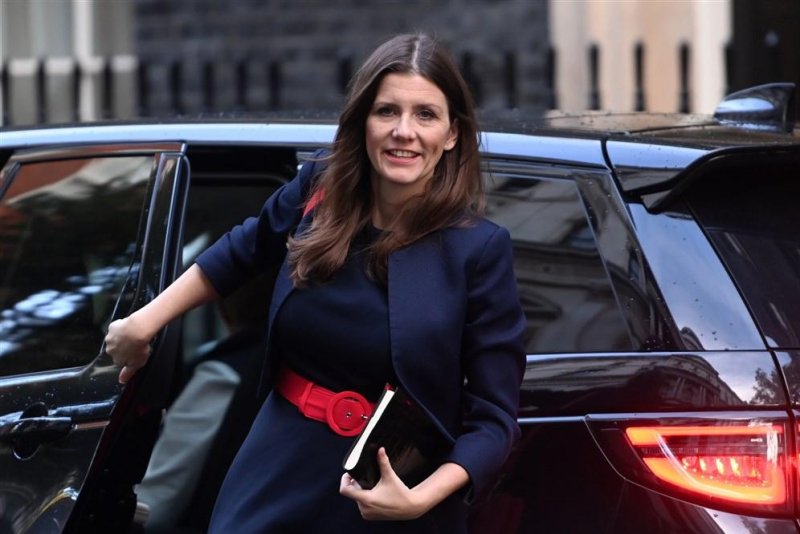British Secretary of State for Digital, Culture, Media and Sport Michelle Donelan arrives at 10 Downing Street in London on November 8. She defended a proposed online safety bill on Monday. File Photo by Andy Rain/EPA-EFE
Nov. 29 (UPI) -- British lawmakers on Tuesday walked back measures from a bill regulating safety that would have required tech companies to remove "legal but harmful" content.
The Online Safety Bill had included requirements that would have made social media giants like Facebook, Instagram and YouTube responsible for preventing people from being exposed to content such as suicide and self-harm, eating disorders and misogynistic posts.
The updated language now only requires the companies to introduce a system that allows users more control to filter out harmful content they do not want to see. Critics said the original language posed too great a risk to free speech rights.
Ian Russel, whose daughter Molly Russel committed suicide after finding self-harm content online, accused the officials of taking out stronger measures for political reasons.
"I think the most harmful content to [Molly] was content that could be described as legal but harmful," Russell said. "It is very hard to understand that something that was important as recently as July, when the bill would have had a full reading in the Commons and was included in the bill, this legal but harmful content, it is very hard to understand why that suddenly can't be there."
British Culture Secretary Michelle Donelan said, though, free speech concerns had bogged down the bill and prevented it from moving through the legislative process. She rejected the claim that it had been watered down with the change.
"It had very, very concerning impact, potentially, on free speech," Donelan said. "There were unintended consequences associated with it. It was really the anchor that was preventing this bill from getting off the ground.
"It was a creation of a quasi-legal category between illegal and legal. That's not what a government should be doing. It's confusing. It would create a different kind of set of rules online to offline in the legal sphere."















